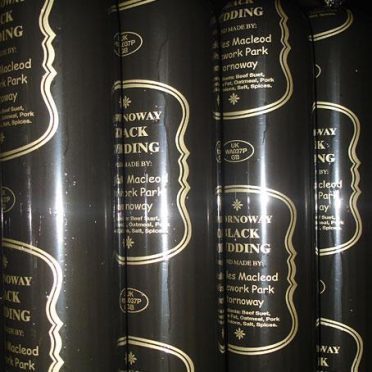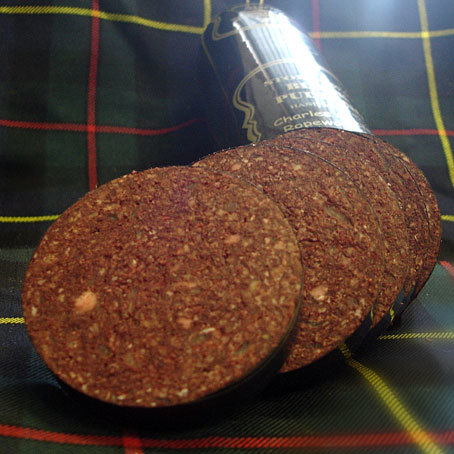Hailed as hero and villain of any full Scottish breakfast the health benefits of Stornoway’s famous black pudding may not be immediately obvious.
However, this year sees the crofters treat take it’s place alongside faddy ‘superfoods’ like quinoa, kale and cranberries as the newest addition to a balanced, healthy diet.
Eating ‘natural foods’ is the order of the day and processed treats are viewed with suspicion and bad press, but the humble black pudding has put a stop to that.
With a lack of carbs, minimal to no sugar and healthy doses of protein, calcium, magnesium, potassium, zinc and iron the traditional island dish is set to enjoy increasing popularity in 2016.
The product’s popularity has been rising since the meaty, moist, rich, full, savoury treat achieved European protected status in 2013, following a campaign by four island butchers.
This protection means that the black pudding can only be described as from Stornoway if it is made in the town.
However ongoing negotiations between the USA and the EU to bring down trade barriers could damage foods currently protected by Brussels as having special status as part of the deal.
Arbroath smokies, Aberdeen Angus beef and Stornoway black pudding are protected under the European law PGI (Protected Geographical Indication).
PGI status means that only products that are genuinely made in the region of origin can be marketed as such.
US trade representative Michael Froman is said to have raised concerns about keeping EU protected status during the talks over the Transatlantic Trade and Investment Partnership (TTIP).
Hundreds of products across the EU currently enjoy PGI status, including Parma ham, Champagne and Stilton.
A consultation on whether Dundee cake should join them is being considered by the European Commission after being launched by Scottish Government food minister Richard Lochhead in November.
Bakery firm Fisher and Donaldson has said it will move production of Dundee cake to the City of Discovery if the delicacy receives PGI status.

